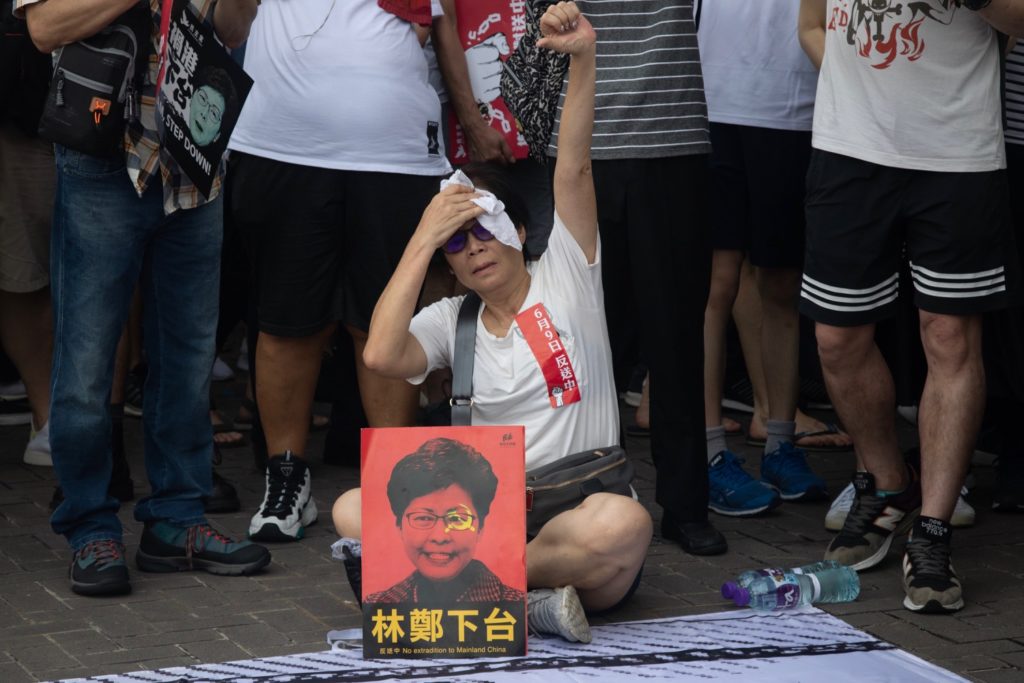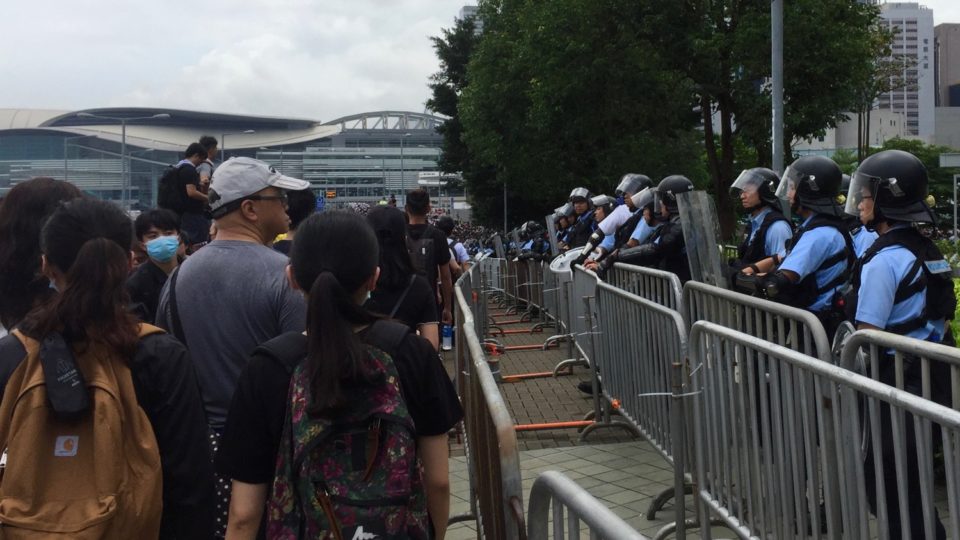Hong Kong’s police are finding themselves the subject of mounting criticism for their heavy-handed response to Wednesday’s demonstration in Admiralty, as international criticism of the extradition bill protesters came out to oppose continued to trickle in today.
Tens of thousands of demonstrators occupying city streets scattered when police used tear gas, pepper spray, rubber bullets, and bean bag rounds yesterday.
Police insisted the force was necessary to fend off protesters throwing bricks and metal bars, but critics said officers used localized violence by small groups of hardcore activists to launch an unprecedented operation against the much larger mass of peaceful protesters who had taken over parts of Admiralty.
The Hong Kong Bar Association slammed the “deployment of wholly unnecessary force against largely unarmed protesters who did not appear to pose any immediate threat to the police or the public at large.”
The group said the police “may well have over-stepped its lawful powers in maintaining public order.”
An influential legal group on a committee that elects Hong Kong’s leader called for an independent inquiry into what it said was “excessive use of force” by officers.
Clips showing brutality on the part of officers, meanwhile, have fueled online criticism.
In one Apple Daily clip, a young woman who falls to the floor while running away is hit by at least four riot police with batons, while one brings his plastic riot shield crashing down on her.
Earlier – Police assaulting young girl already fallen on ground #antiELAB #NoExtraditionChina pic.twitter.com/vRJTZXOO97
— Galileo Cheng (@galileocheng) June 12, 2019
In another, a man sitting on a wall is approached by riot police, with whom he is seen exchanging a few words before they pepper spray his face repeatedly at close range.
[Repost]The Hong Kong police have completely lost their rationality. The foreigner was not a demonstrator. He said that his feet felt pain and could not move, but the Hong Kong police kept spraying pepper spray on him.#HongKongProtest #HongKongHumanrights #HongKongExtraditionLaw pic.twitter.com/sZmd18cyZa
— fromizone (@na_gyung0601) June 13, 2019
A third online clip shows several policemen slam a protester holding a box of water bottles to the ground, where several kneel on him to hold him down until he releases his phone.
“Protesters were just sitting there and demonstrating peacefully, but they used tear gas in their faces… You can only use the word hideous to describe this,” lawmaker Claudia Mo told reporters.
The Hong Kong Journalists Association said it has received more than 15 complaints from reporters — including some who say they were targeted with pepper spray — and called for more witness accounts from reporters of any abuses by police.
Police chief Stephen Lo defended his officers Wednesday, saying they had shown restraint until “mobsters” tried to storm parliament.
Several police officers were among the injured, with local TV showing one unconscious officer being carried away after appearing to have been hit by a projectile.
Two people are in a serious condition and 77 more were injured in the chaos.
Compared with police in other parts of the region, Hong Kong’s police have generally had a good reputation due to territory’s rule of law and open justice system. Their motto “Asia’s Finest” has been in place since colonial rule. But in recent years, anger has grown towards the force — with a key turning point being the use of tear gas against peaceful protesters, which sparked the Occupy movement of 2014.

Yesterday’s protest, and another, even larger peaceful march on Sunday, appear to have done little to deter pro-Beijing officials from forcing through the controversial extradition bill, which would allow for the first time in decades renditions to mainland China.
But as the Hong Kong government holds its line, foreign governments continued to call on it to reconsider the deeply unpopular legislation, and to express sympathy for protesters.
The European Union called for the “fundamental right” of Hong Kongers to assemble and express themselves to be respected, and said it “shares many of the concerns raised by citizens of Hong Kong regarding the government’s proposed extradition reforms.”
The bloc said the proposed law had “potentially far-reaching consequences for Hong Kong and its people, for EU and foreign citizens, as well as for business confidence in Hong Kong.”
Wednesday’s protest forced a postponement of the next reading of the bill, but Hong Kong’s pro-Beijing leader Carrie Lam has shown no signs of backing down.
Students, democracy campaigners, religious groups and business representatives in the semi-autonomous territory have spoken out against the extradition bill. The government says it is necessary to fix a loophole, but opponents say it would be abused by an increasingly assertive Beijing to pursue its political enemies.
British Prime Minister Theresa May said on Wednesday evening that it was vital the proposed law did not breach the agreement setting out the terms of the city’s return to China.
She said her government was concerned about the “potential effects of these proposals particularly, obviously given the large number of British citizens there are in Hong Kong”.
US President Donald Trump, meanwhile, told reporters in Washington he could “understand the reason for the demonstration,” and said he hoped “it all works out for China and for Hong Kong”.




